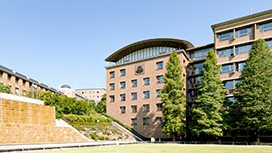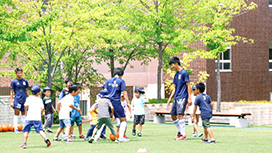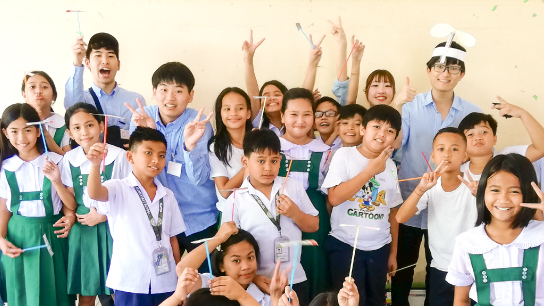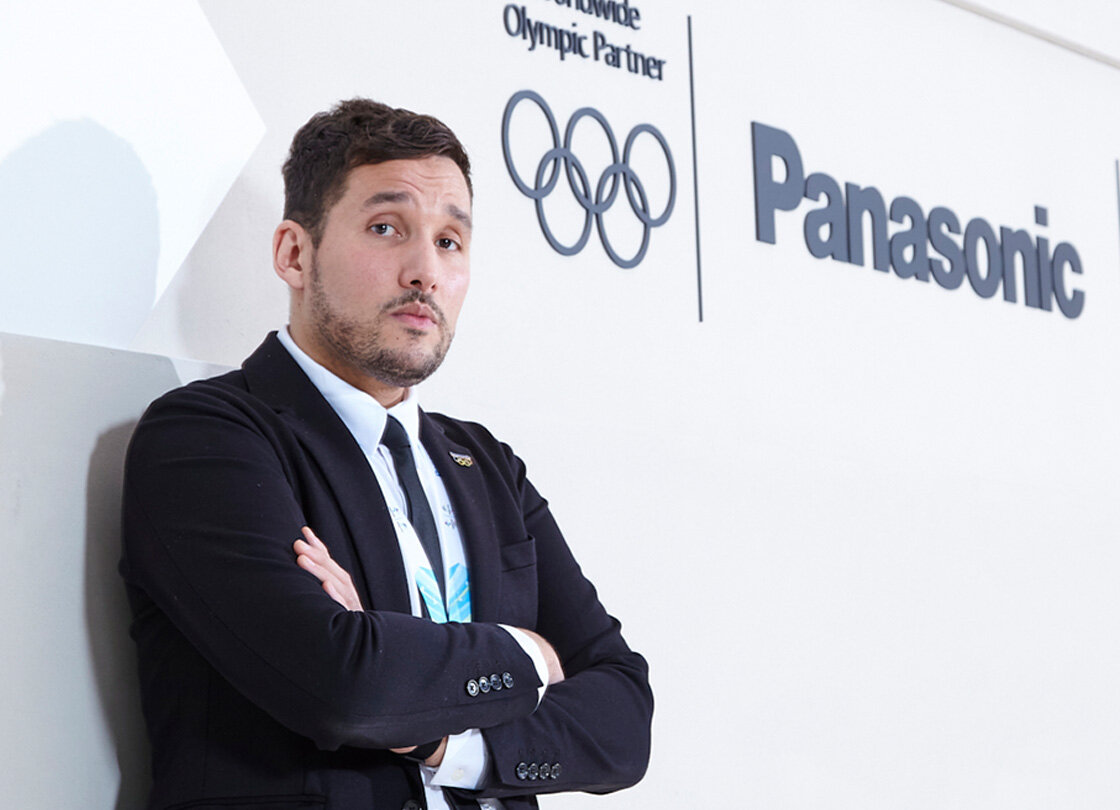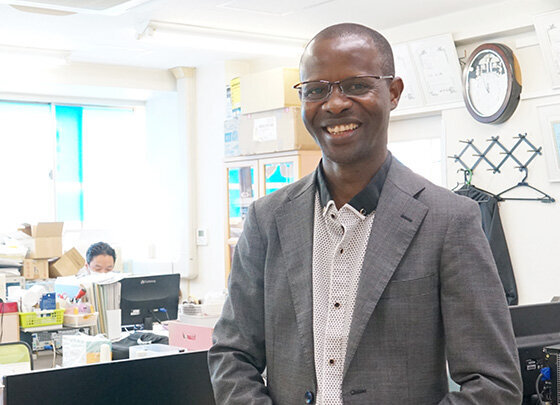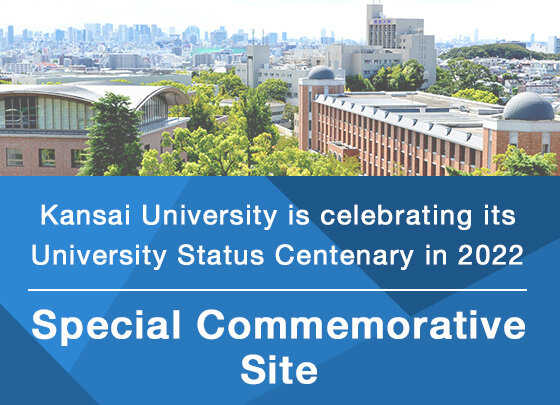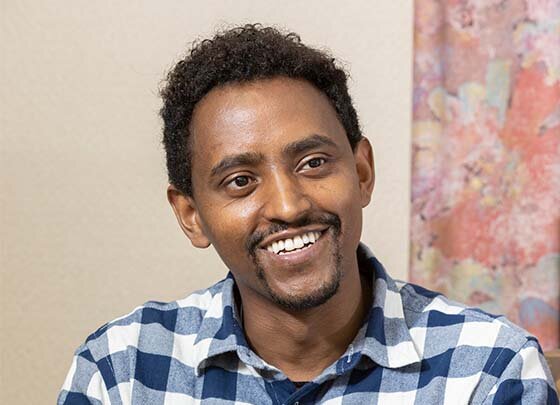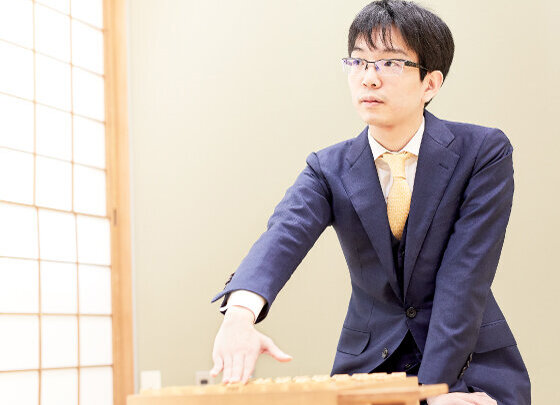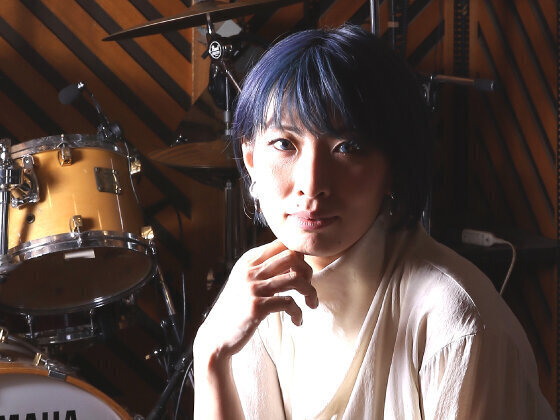KANDAI
HEADLINES
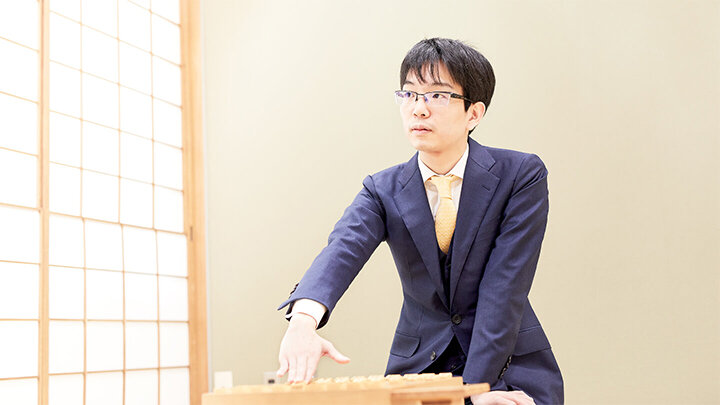
- PERSON
A Talk Between Masayuki Toyoshima and Keiji Shibai
Comprehensive AI research, a key turning point
Masayuki Toyoshima, a professional shogi player × Keiji Shibai, Chairperson of the Board of Trustees of Kansai University
The shogi world is in an era where four great players collectively vying for eight titles. Against a backdrop of rivalry between these young professional shogi players who have risen to prominence, Masayuki Toyoshima (a Ryuo and Eio title holder) reigns supreme as the top professional shogi player. He has acquired two major titles to become the first Meijin and Ryuo master of the Reiwa era.
In 2019 and 2020, Masayuki Toyoshima won more prize money than any other professional player. He is also a pioneer in the field of shogi software (AI) research, and he is a well-known all-around shogi player with no obvious opening, middle game, or endgame weaknesses.
In March of 2021, we had an opportunity to conduct a special interview between Keiji Shibai, Chairperson of the Board of Trustees of Kansai University, and Masayuki Toyoshima, a graduate of Kansai University Dai-ichi Senior High School.
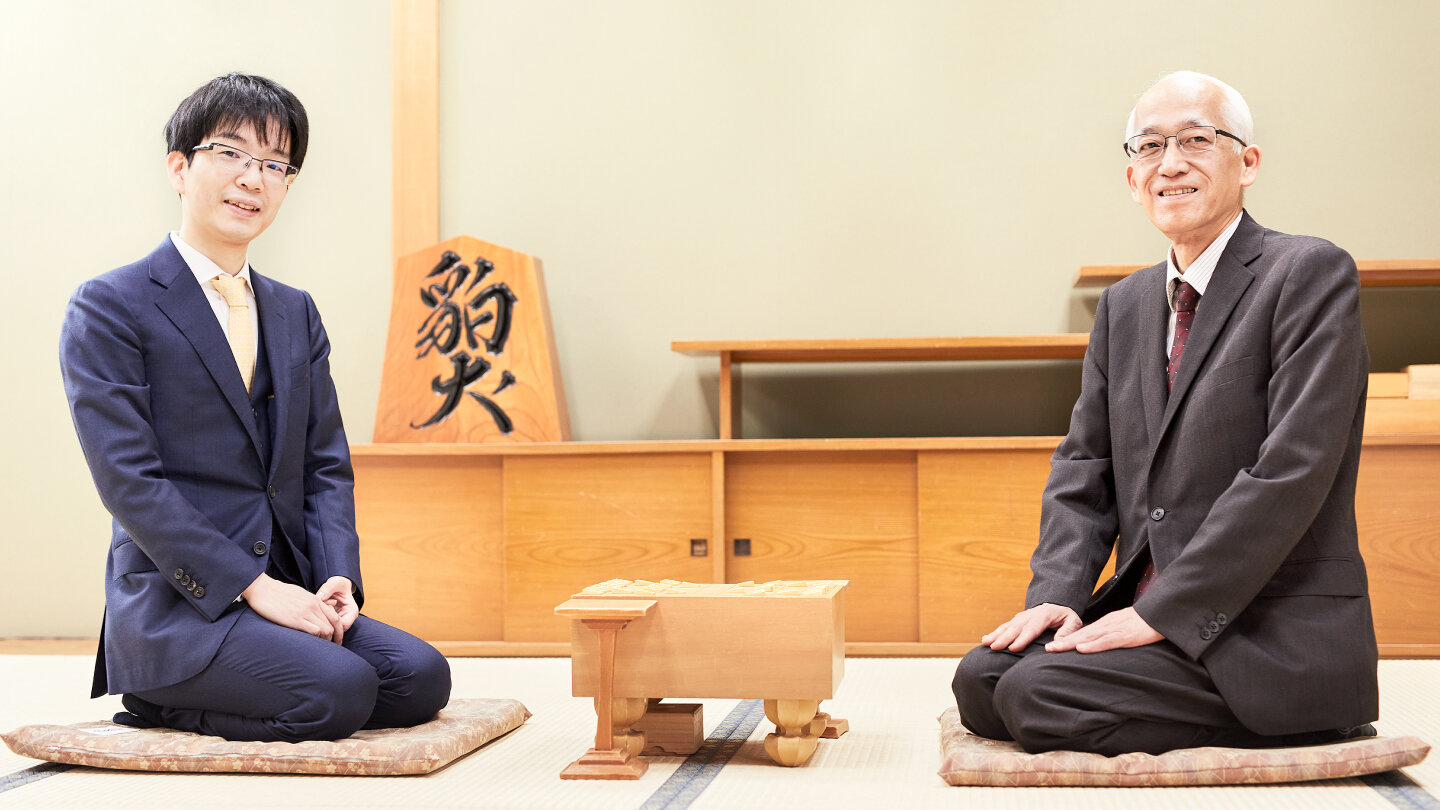
A boy hailed as a genius who went on to become a professional shogi player while still in high school
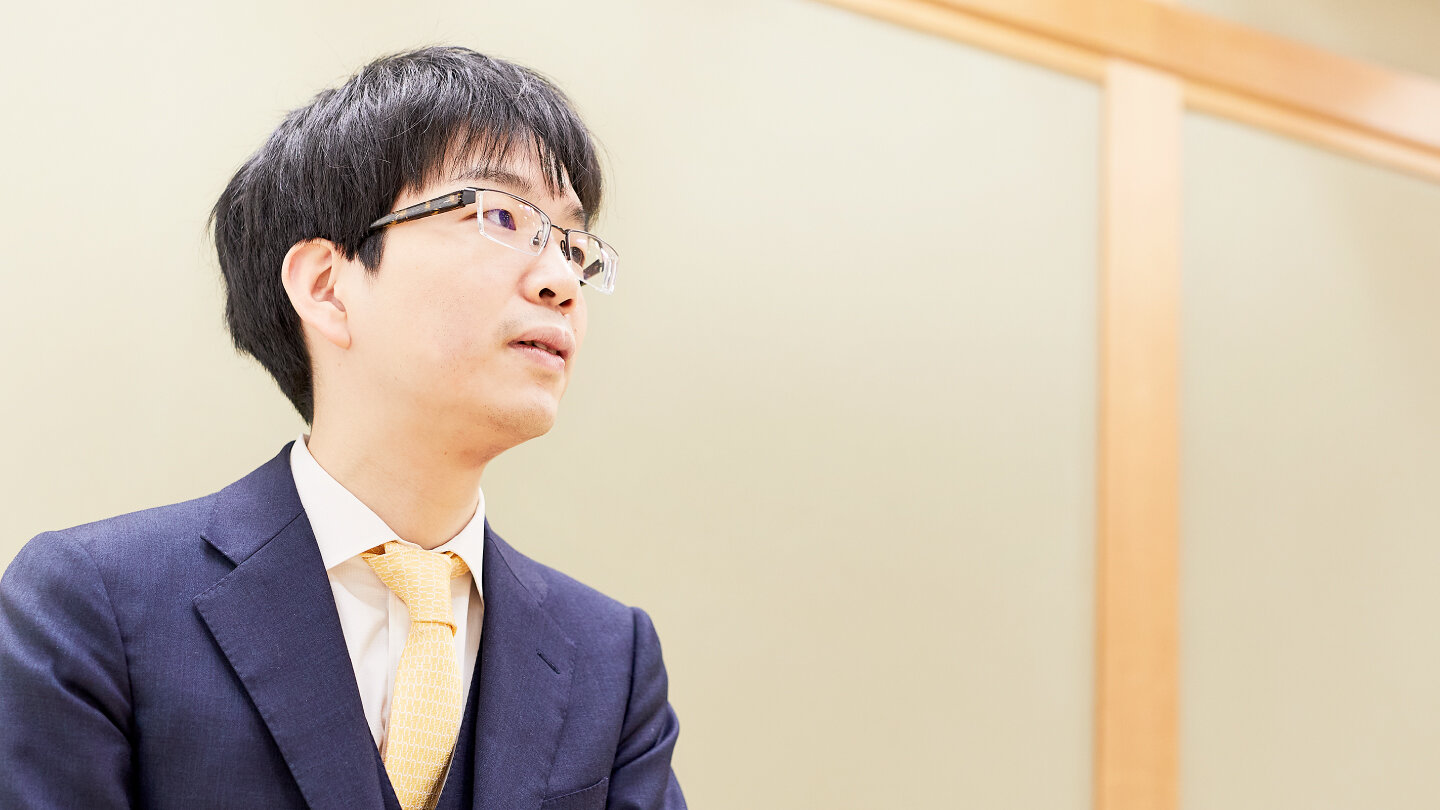
- Shibai
- You were referred to as a formidable boy genius from an early age, but what prompted you to start playing shogi?
- Toyoshima
- I first became interested in shogi when I was watching it on TV at the age of around four. I don't really remember the details, but I was especially interested in the countdown rule that says you have to drop a piece within a certain number of seconds. It gave the game a unique sense of urgency. My mother knew the rules of shogi, so I ended up learning it from her.
- Shibai
- I see. And when did you join the Shoreikai?
- Toyoshima
- When I was nine. They recognize anyone who is good at shogi regardless of their age, so I have a lot of fun memories of that time, even though the matches were sometimes tough
- Shibai
- Right. After that, did you have any particular reasons for choosing to advance to Kansai University Dai-ichi Senior High School?
- Toyoshima
- Although schoolwork was naturally important to me, I really wanted to spend my three years in high school concentrating on shogi. In that regard, I also reasoned that--if I went to Kansai University Dai-ichi Senior High School, an annex of Kansai University--I wouldn't have to spend any extra time getting ready for my university entrance exam. My parents also recommended the school, which helped me reach my decision to go there.
- Shibai
- I see. And then you ended up becoming a professional shogi player while you were still a high school student, right?
- Toyoshima
- Right. Specifically, that was during my second year of high school. I was able to devote myself to shogi just like I imagined doing before I was admitted. My winning percentage was around 70%, so I guess you could say that Kansai University Dai-ichi Senior High School was a good environment for me.
- Shibai
- Thank you. That's good to hear.
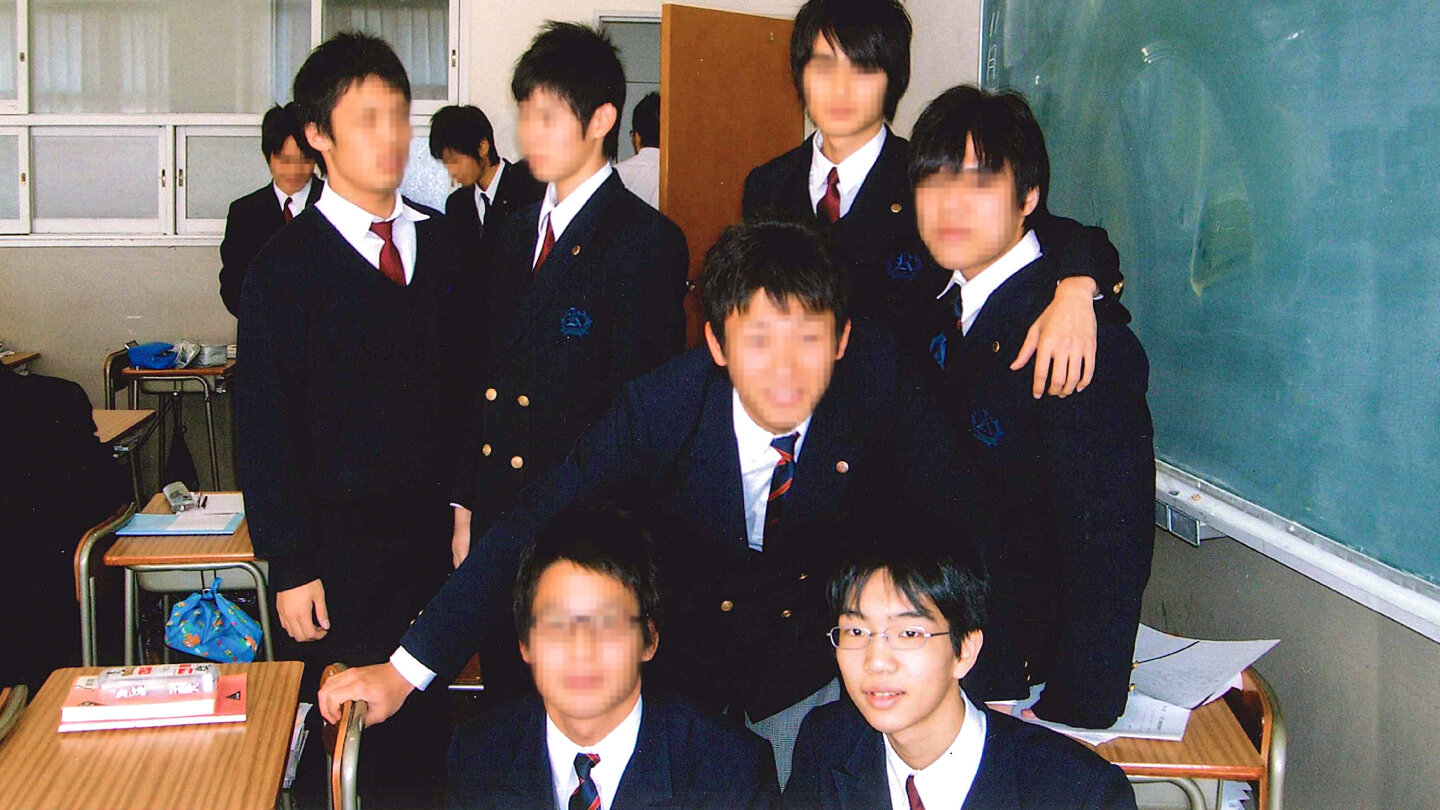
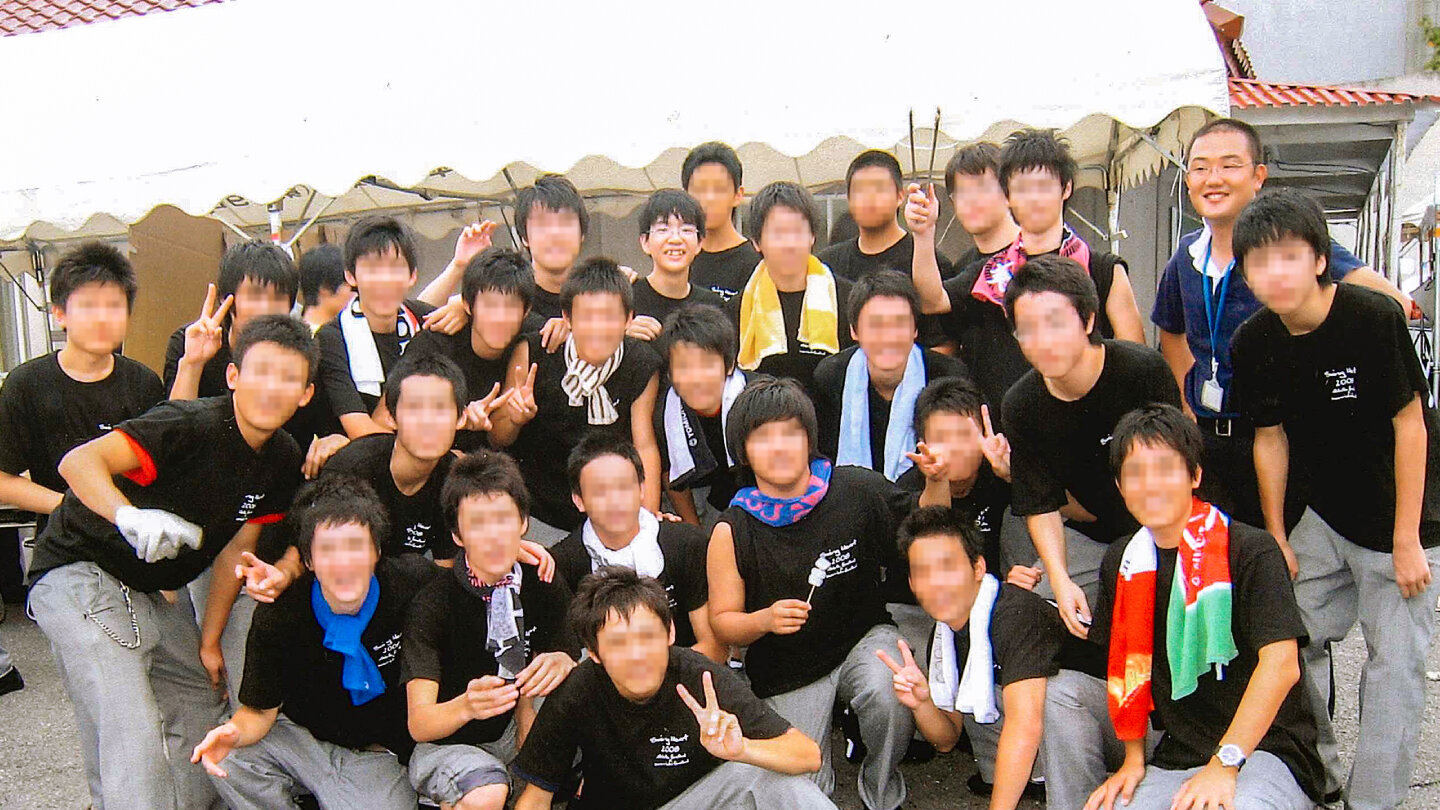
Toyoshima's resolution to commit himself to shogi and his efforts to take on challenges never attempted by anyone else
- Shibai
- After you advanced to Kansai University's Faculty of Letters, it must have been hard to handle the demands of both classes and shogi, right?
- Toyoshima
- Well, I made new friends, and the classes were interesting and all, but--as a result of joining the Oshosen shogi league--I made a firm decision to fully commit myself to shogi. The Oshosen league gave me the opportunity to play against strong players, which was rewarding, boosted my confidence, and was instrumental in helping me make my decision. In the world of shogi, there are a lot of professional players who commit themselves to shogi instead of advancing to a high school or university, so leaving university in the middle of my studies did not affect my career much.
- Shibai
- I see. At the time, universities had an image of being a place you graduate from to become a member of society and then never return. That said, universities have more recently started to become locations of recurrent education, or rather relearning. In fact, we are striving to provide learning opportunities not only to students in the 18 to 22 age group but also to a wide variety of other people interested in pursuing higher education, regardless of their age. Given how long life is, I hope you will think of Kansai University as a place you could return to one day.
- Toyoshima
- You have a point there. Are a lot of people admitted for reeducation purposes?
- Shibai
- Well, the number is gradually increasing. They say that society is changing at an increasingly frantic pace, but the nature of learning is changing right along with it. The things a person learned in the past becomes outdated. Therefore, we think there will be an increasing need for recurrent education.
- Toyoshima
- You are talking about always trying to keep on learning new things, right? Incorporating new information was also a turning point for me personally, so I definitely know how important that is.
- Shibai
- I assume you mean your shogi software research. I have heard that you are a pioneer in that particular field.
- Toyoshima
- That's right. When I first started conducting shogi software research, there were pretty much no other professional shogi players doing anything similar. At the time, I was in my early twenties, a time when people are supposed to be developing their abilities. I didn't really feel like my own abilities were developing, so I was kind of frustrated. I felt like I needed to try something new, so I started playing against and researching shogi software. I actually temporarily gave up on interpersonal research and switched to shogi software research exclusively.
- Shibai
- That sounds like quite a bold move.
- Toyoshima
- Well, I didn't achieve any meaningful results at first, but I soon started gaining leads in my games through opening tactics, and I became a leader in terms of my rating* as well.
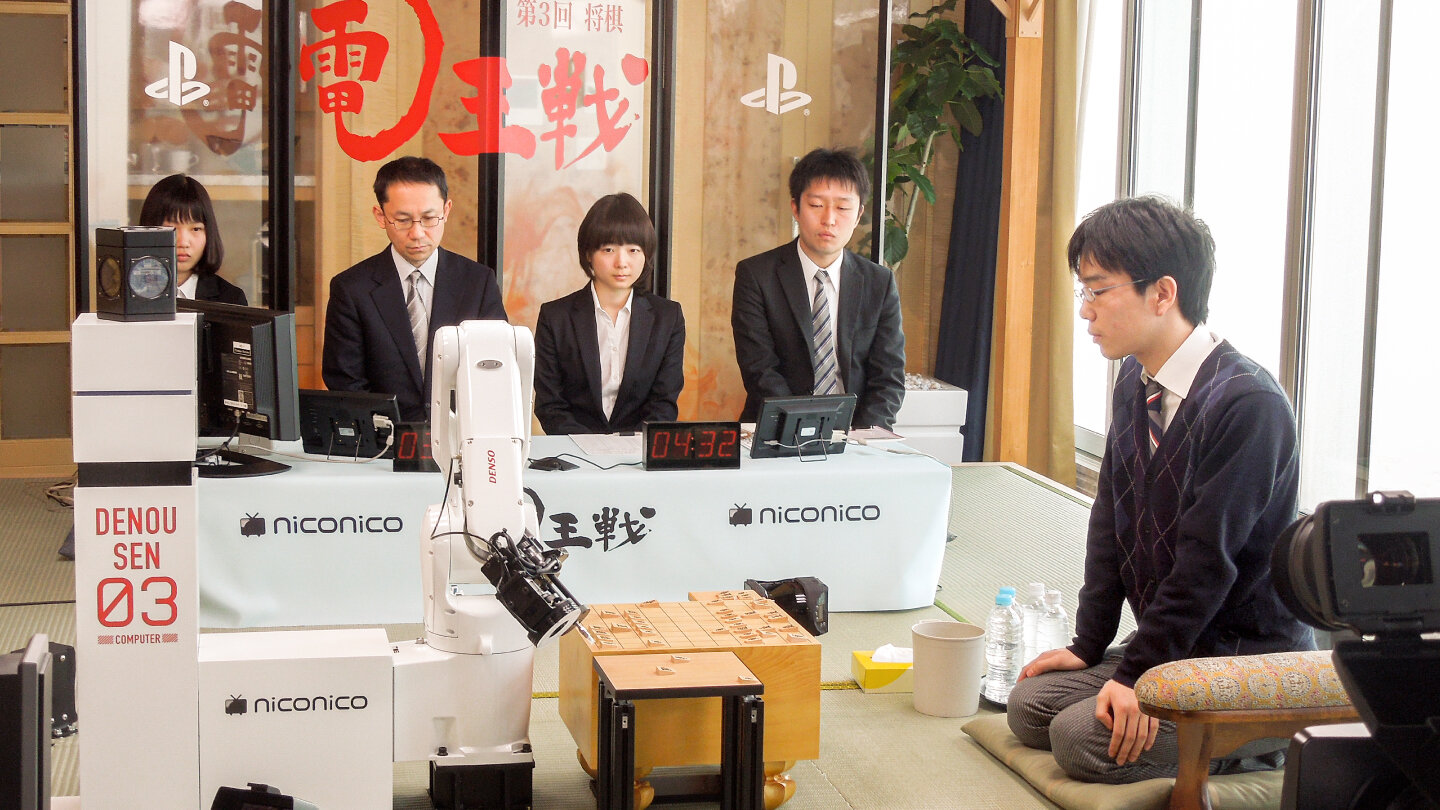
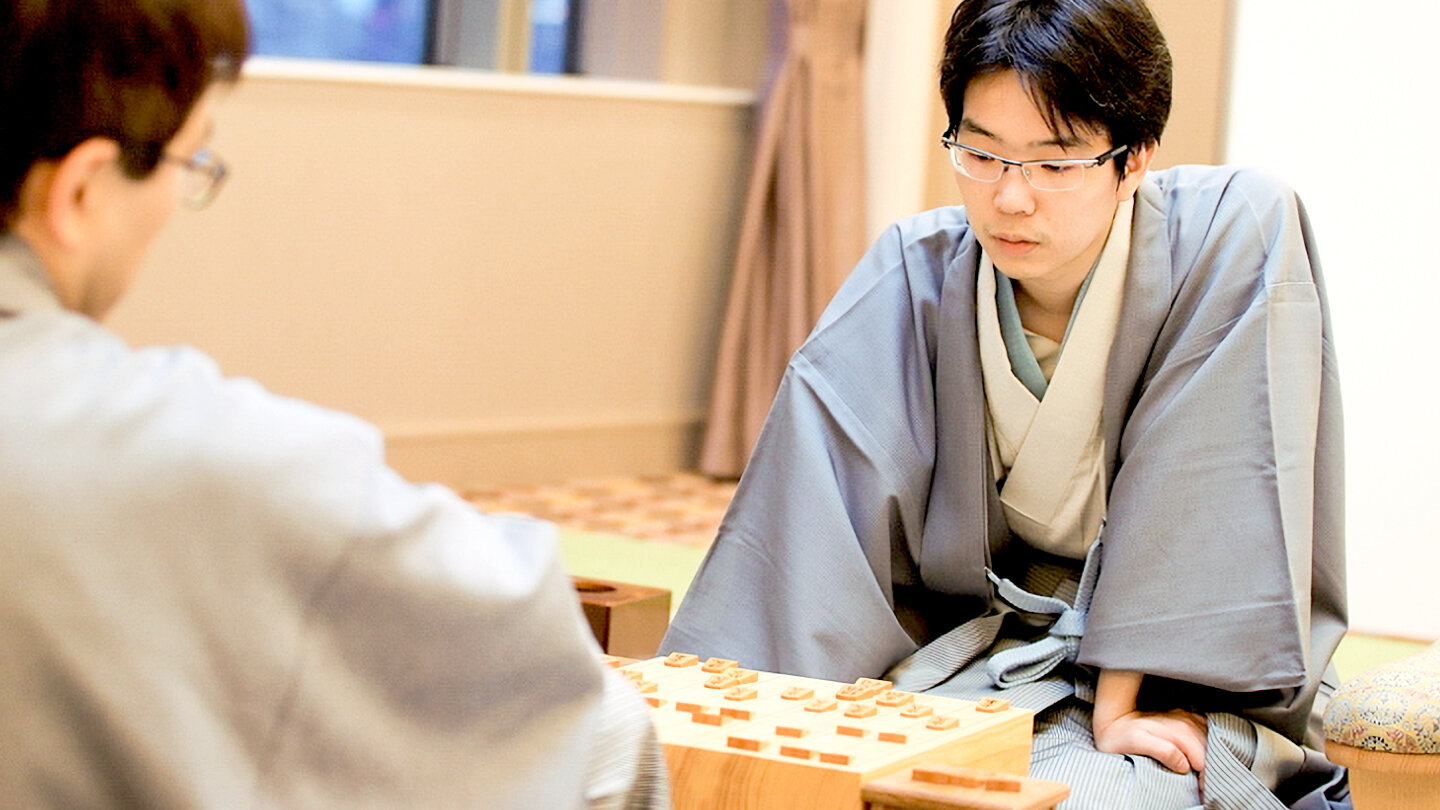
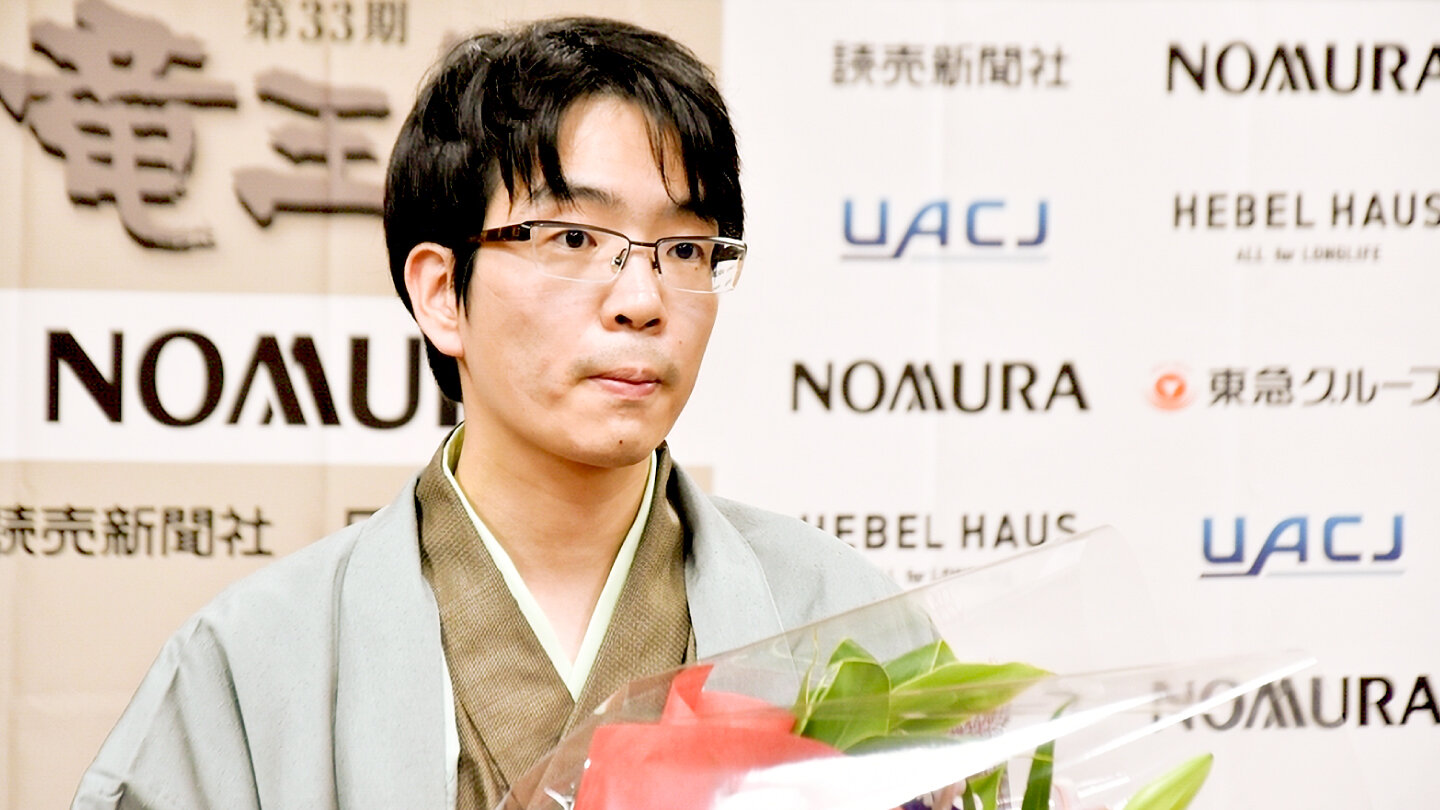
※What is a rating?
An unofficial indicator of the abilities of professional shogi players based on past match results.
Increasingly general use of AI
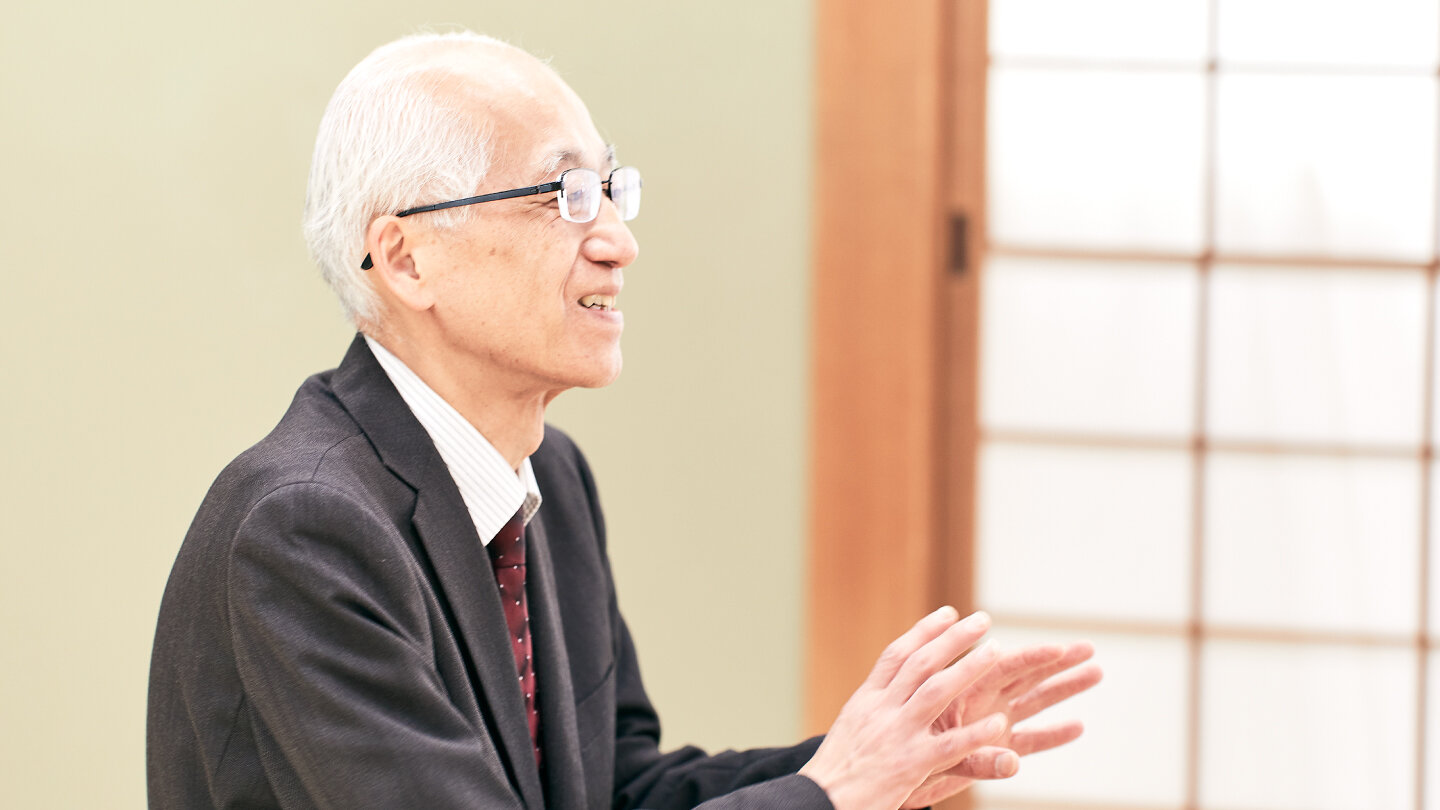
- Shibai
- Nowadays, plenty of professional shogi players research AI, right?
- Toyoshima
- They do. Other professional shogi players currently approach the game similarly to me, so I no longer gain a lead during the opening. And that's exactly why I feel the need to keep learning and researching.
- Shibai
- Indeed. Speaking of AI, Kansai University started up a new data science education program this year.
- Toyoshima
- You mean this spring?
- Shibai
- Yes. The contents of the program were managed by specific faculties up until now, but we decided to make the contents accessible to all students, regardless of their focus on sciences or humanities. This is because we believe that--in the near future--AI and data science knowledge and skills will be basic abilities that everyone should have. The use of AI will likely become more widespread, similarly to the way it is used for shogi.
- Toyoshima
- I see. You know, in the case of shogi, there is no methodology for deciding when to start pursuing shogi software research in terms of one's level of abilities. One topic of interest to me is when and how a person should pursue such research with reference to effectively improving their abilities.
- Shibai
- Yes, that is interesting.
- Toyoshima
- It would be fascinating if--in various fields outside of shogi as well--someone found a methodology for utilizing AI to improve human abilities. Even if shogi software ultimately ends up surpassing human abilities, I'd still be happy if we could use such software to improve ourselves.
- Shibai
- True. Instead of viewing AI as an opponent to challenge, you could look at it as a tool for improving human abilities. Based on what you say, I can really feel your love for the game.
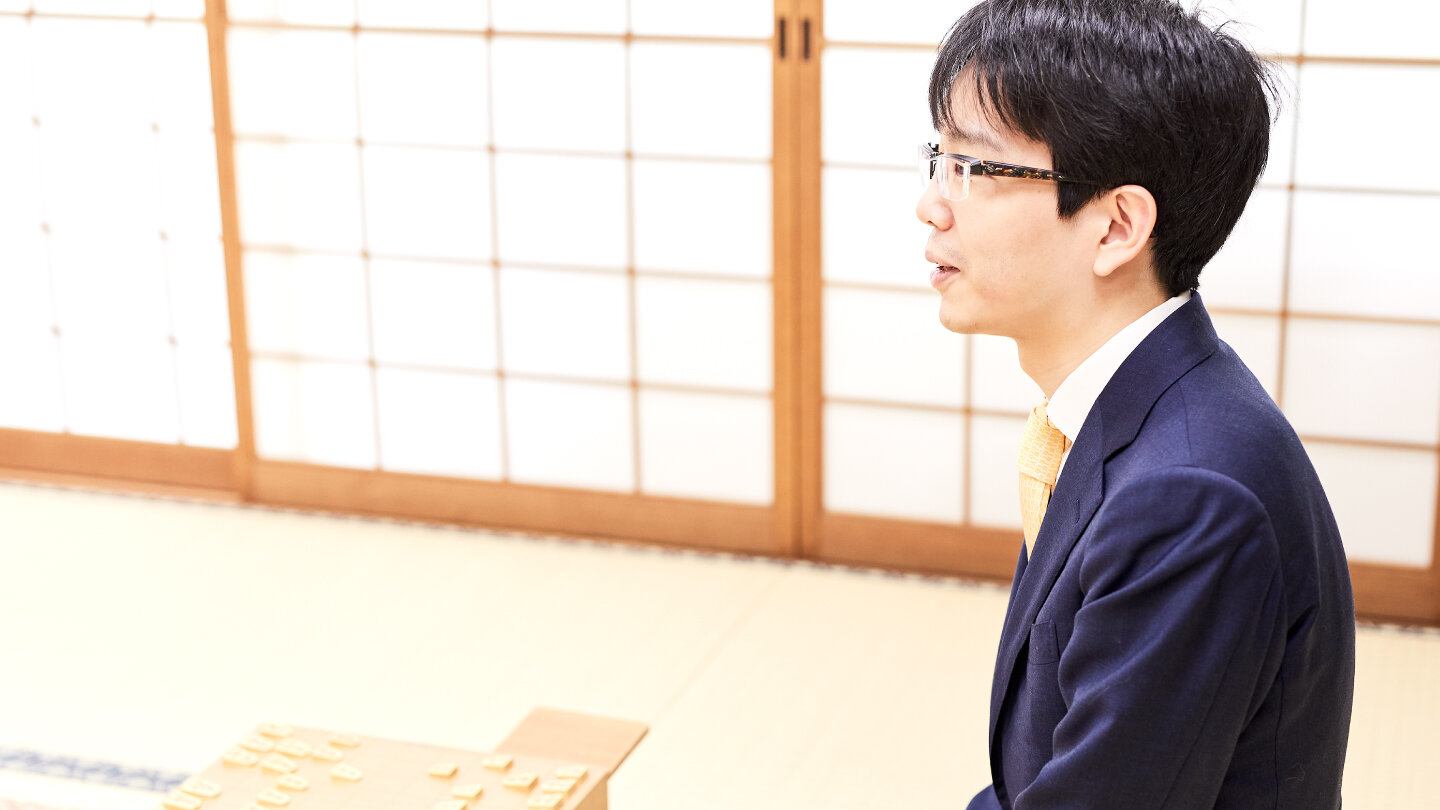
I want everyone to discover what they like and can really put their heart into
- Shibai
- By the way, is there anything you would like to say to today's university or high school students?
- Toyoshima
- Well, I guess I want everyone to discover their passions and can really put their heart into it.
- Shibai
- You mean finding something they like and then really going all out, just like you have with shogi, right? Regardless of whether someone achieves anything as a result, there is certainly value in expanding one's horizons as a person through such effort. Do you have any future aspirations yourself?
- Toyoshima
- I'm over thirty years old, so it will likely be difficult for me to get much better at shogi. Nevertheless, I hope to be able to keep competing in title matches. The life of a professional shogi player requires a great deal of research and self-discipline to prepare for matches, but I feel like the fun parts outweigh the unpleasant ones.
- Shibai
- That's really wonderful. The number of eighteen-year-olds in Japan is decreasing, so it will be tough for universities to grow if they don't change the way they work. For example, we have to consider what kind of value we can provide as an education and research institute. I also hope we can pursue various initiatives, including not only the data science education I mentioned earlier but also actions in response to SDGs, the need for carbon neutrality, and other social issues. I feel like talking to you today has left me with some homework to do. Thank you.
- Toyoshima
- Thank you.
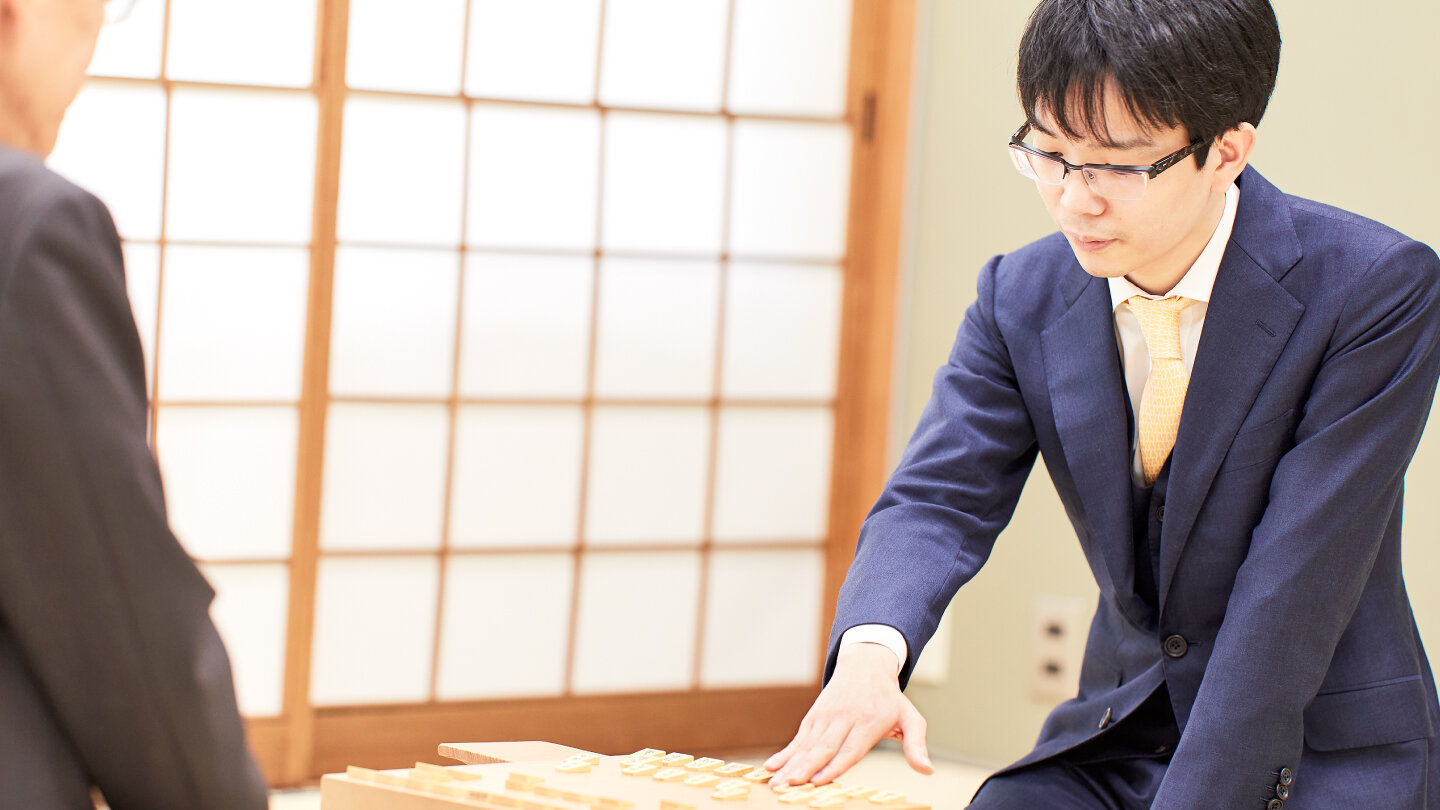
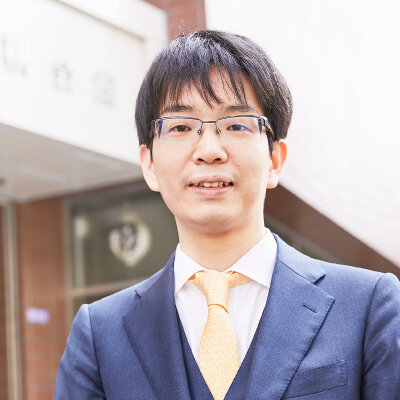
- Masayuki Toyoshima,professional shogi player (graduated from Kansai University Dai-ichi Senior High School in 2009 and dropped out of the Kansai University Faculty of Letters)
- Toyoshima was born in 1990 in Aichi Prefecture and then moved to Osaka when he was five years old. He started playing shogi at an early age and became a professional player when he was 16. In 2014, he won a Den-O-Sen computer-human match. In 2018, he won his first title and went on to achieve a triple crown faster than any player had ever done before. As of the time of this interview, he still had two major titles: Ryuo and Eio.
Related articles
- TOP
- About Kansai University
- Public Relations
- List of Headlines
- Headline Article

